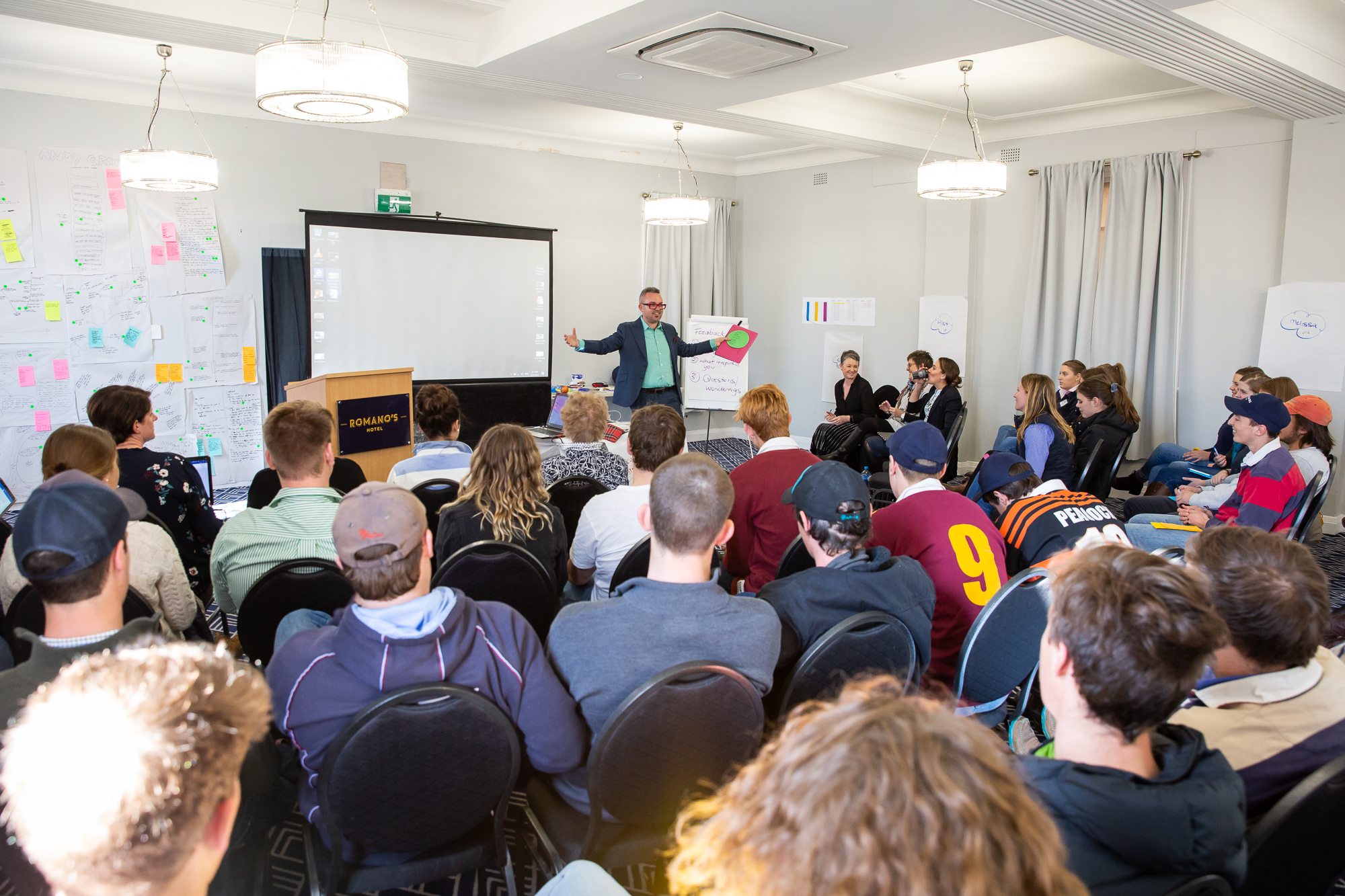Applications are now open for the 2020 AgriFutures™ Horizon Scholarship intake and this next cohort of students will mark 10 years of the program. Students in their last two years of university, studying an agriculture-related undergraduate degree or a Science, Technology, Engineering, Maths/Finance (STEM) degree with relevant majors which align to agriculture are eligible to apply.
One person who has been there from the very beginning is Bryce Ives, who has facilitated the annual workshop for the Horizon Scholarship winners. We talked to Bryce about how it’s evolved and what’s next for this transformative program.
Over the 10 years you’ve been involved with the AgriFutures™ Horizon Scholarship program you must have seen lots of change, what stands out to you?
First and foremost, the perspectives of the young people involved in the program have really shifted and expanded over the past 10 years. Now they’re thinking globally about agriculture and feeding the world.
When it started, the Horizon Scholarship was about encouraging young people to get into agriculture and raising the industry’s profile. Now though it’s about being an exceptional leader in the agriculture industry and actively shaping the future.
I have to say the diversity of our participants has grown year on year too. Ten years ago we really were a program for your stereotypical agricultural science students. Most of the scholars were studying something similar at university and often came from a traditional family farming background and connection. Now our program attracts a much more eclectic mix. We’ve got young people from the cities, people with no direct connection to farms or agriculture experience and we’ve got people studying across a more diverse array of fields – from accounting, economics, engineering degrees as well as science and agriculture. They bring really surprising points of view to the table. It’s been great to see the cultural diversity of the program mature and we’re working on making sure that keeps growing too.
That brings us nicely to a new focus for the AgriFutures™ Horizon Scholarship program in 2020, specifically targeting STEM university students with majors that align to agriculture. Why is that focus so important now?
To put it simply, we’re meeting the Horizon scholars where they are. They want STEM included in this program and they want to collaborate with experts from these areas. When you look at the National Farmers’ Federation’s ‘Talking 2030’ ambition to grow agriculture to $100 billion in farm gate output and the UN’s #Envision2030 Sustainable Development Goals, one of which is zero hunger, it’s pretty clear that we need to broaden the scope of the program and meet the domestic and global challenges.
As well as STEM, and equally important in my opinion, is communications and storytelling with purpose. It’s become more critical with every year of the program, and at each of our annual workshops scholars grapple with the idea of social license for the agriculture industry. Having the perspectives of students who understand communication as well as science and agriculture is a real bonus. For the program now, especially at the workshop, it’s about putting four C’s together – communication, creativity, collaboration and culture – to impact the future of the industry.
Why is creativity an important part of the program?
I’m always saying to young people, “don’t be afraid to be creative.” They need to remember that creativity comes in all shapes and sizes, it’s not just about being artistic. You can be creative in your spreadsheet, in how you run your business or in the research you choose to do. It’s about reinventing the concept so we can all tap into it. We need to celebrate the creative in agriculture. It’s an inherent part of our industry, especially creative resilience, but we don’t really talk about it enough.
Part of the AgriFutures™ Horizon Scholarship program is reminding our future leaders about the role of creativity in agriculture and getting them to truly embrace it as a means to shape the industry. Across the years, we’ve been using the framework of design thinking (although we didn’t call it that back in 2010!) to try and determine what success looks like. The mindset required for agriculture today is an agile and resilient one. As a Horizon scholar you’re not just asked to think outside the box, you’re asked to reinvent the box. What could be more creative than that?











